2015
Gang aft agly
11/12/15 15:21
Well, despite my posts of late saying no new students and no new funding, at least one of those is now proven wrong. I’m pleased to have Karen Bobier, a fish-focused student who came here from UC Santa Cruz and entered through the Integrated Life Sciences program, join the lab. She will be co-advised by my good colleague Bud Freeman, who does a lot of his molecular work in “my” lab anyway. Beyond that, who knows? I’ve assigned Song of the Dodo by David Quammen for holiday travel reading. Hard to find a more readable and intriguing book that lays out the history of biogeography and community ecology so well, from Wallace to Macarthur & Wilson and more. Below, she and new Dyer student Amanda Shaver are snooping through the massive GMNH fish collections!
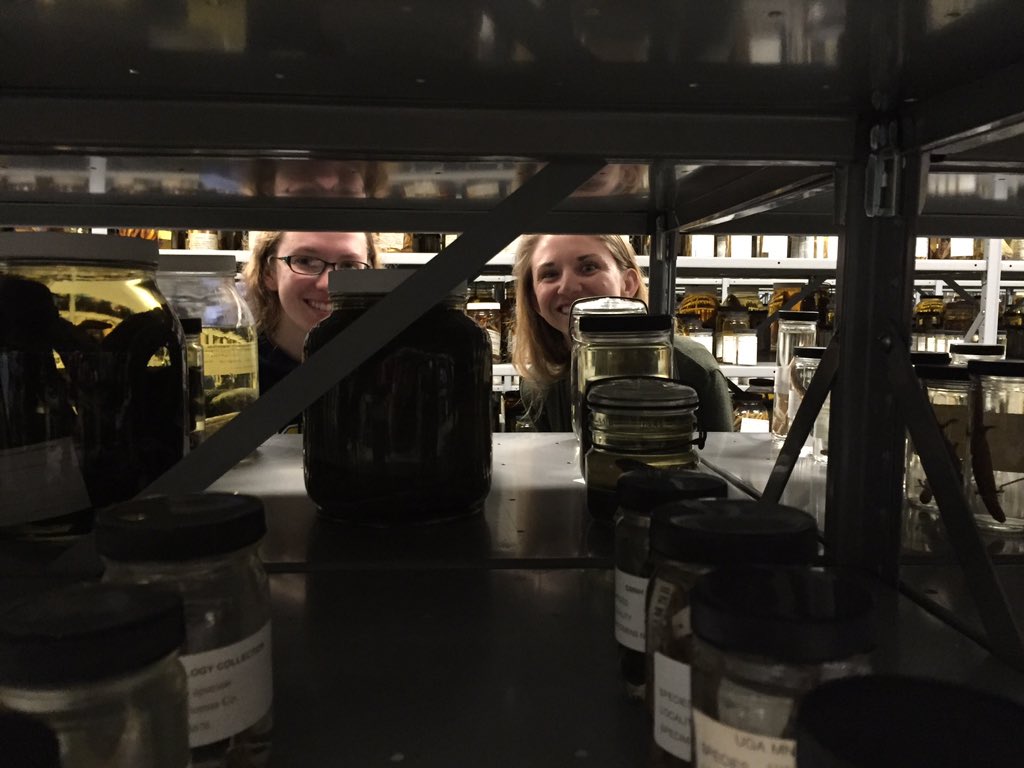
I suppose what I’ve learned from this semester is that my ban on bringing in students, while perhaps practical, was also sort of arbitrary. Sort of like when the grocery checkout person suddenly puts the “LANE CLOSED” sign down while you are in line. I’m going to continue training undergraduates, graduates, and postdocs as long as it is useful to them and makes sense to me. And, I was impressed by how much Karen got done despite 99% of my focus being on getting 2 PhD students finished up this Fall! The difficulties are standard in science: we have to find funding to support some good work, and that will happen sooner or later.
The whole semester also gave me a lot of reason to evaluate what I think about rotation programs in grad school. Though I entered Duke on a rotation program through the University Program in Genetics, it was known all along that I was only “rotating” in labs to pick up some skills and techniques; I would end up in Cliff Cunningham’s lab, and was happy about that. Other schools I’ve been at had direct admission, so that a student only ends up somewhere they are already guaranteed a spot (though student and mentor may later decide they don’t interact well, I’m not sure that 5 weeks in a lab is enough to determine that). I see graduate training as an apprenticeship, as ancient as learning to blacksmith or learning astronomy from a mentor who takes the apprentice in and teaches them what they know. It is a fundamentally personal relationship and one that I invest myself in as best as I can (given multiple trainees, a family, and the rest of my life).
So, the problem with rotation programs is that on the surface they enable students to find a “best fit” by trying out several options, but underneath they have the potential for students to fall off the conveyor belt at the end if some mentors are being very selective, e.g. having many students rotate for a single position, or if - like I had been doing - there is just not an intent to take a student. Rotations have set up anxious situations for a number of students, both related to my lab as well as in other cases around the university - and why? I don’t think I will participate in the rotation program through ILS in the near future. It appears to me that it fundamentally gives even more advantage to the faculty, and at the risk of a student spending precious money, time, and psychological well-being in joining such a system if they aren’t going to be able to study what they want to study.
Pursuing a doctorate should not be taken lightly. I would worry about a student who really didn’t know what she or he wanted to study, and I would worry about a student who ended up devoting five or more years of their life to something that doesn’t really motivate them in the first place. I know some students are here primarily for training for the next position, and some students are good at adapting the situation to their needs. In general, though, I think those students could do just as well if we had direct admission (which we do, both in Genetics as well as in Ecology) and both student and advisor agreed to work together from the start.

I suppose what I’ve learned from this semester is that my ban on bringing in students, while perhaps practical, was also sort of arbitrary. Sort of like when the grocery checkout person suddenly puts the “LANE CLOSED” sign down while you are in line. I’m going to continue training undergraduates, graduates, and postdocs as long as it is useful to them and makes sense to me. And, I was impressed by how much Karen got done despite 99% of my focus being on getting 2 PhD students finished up this Fall! The difficulties are standard in science: we have to find funding to support some good work, and that will happen sooner or later.
The whole semester also gave me a lot of reason to evaluate what I think about rotation programs in grad school. Though I entered Duke on a rotation program through the University Program in Genetics, it was known all along that I was only “rotating” in labs to pick up some skills and techniques; I would end up in Cliff Cunningham’s lab, and was happy about that. Other schools I’ve been at had direct admission, so that a student only ends up somewhere they are already guaranteed a spot (though student and mentor may later decide they don’t interact well, I’m not sure that 5 weeks in a lab is enough to determine that). I see graduate training as an apprenticeship, as ancient as learning to blacksmith or learning astronomy from a mentor who takes the apprentice in and teaches them what they know. It is a fundamentally personal relationship and one that I invest myself in as best as I can (given multiple trainees, a family, and the rest of my life).
So, the problem with rotation programs is that on the surface they enable students to find a “best fit” by trying out several options, but underneath they have the potential for students to fall off the conveyor belt at the end if some mentors are being very selective, e.g. having many students rotate for a single position, or if - like I had been doing - there is just not an intent to take a student. Rotations have set up anxious situations for a number of students, both related to my lab as well as in other cases around the university - and why? I don’t think I will participate in the rotation program through ILS in the near future. It appears to me that it fundamentally gives even more advantage to the faculty, and at the risk of a student spending precious money, time, and psychological well-being in joining such a system if they aren’t going to be able to study what they want to study.
Pursuing a doctorate should not be taken lightly. I would worry about a student who really didn’t know what she or he wanted to study, and I would worry about a student who ended up devoting five or more years of their life to something that doesn’t really motivate them in the first place. I know some students are here primarily for training for the next position, and some students are good at adapting the situation to their needs. In general, though, I think those students could do just as well if we had direct admission (which we do, both in Genetics as well as in Ecology) and both student and advisor agreed to work together from the start.
Empty Nest
23/11/15 09:45
I haven’t written anything here in a while!
I’ll attribute this to the hectic wonderful frenzy of helping two new Ph.Ds finish up. Dr. Katie Bockrath and Dr. Christine Ewers-Saucedo have now been unleashed onto the world!

I’ve said it before, I said it as they defended, I’ll say it when I walk these two across the stage in December - I’ve never experienced such a close-knit team in science. These two helped each other battle through R code, field work, illnesses, and most of all putting up with ME. They defended back-to-back in less than 24 hours, and both got jobs - not just jobs, GREAT jobs - within a few weeks of each other. Christine will be heading to California to postdoc with Rick Grosberg (one of the true greats in marine evolutionary ecology, and yes he was my 2nd postdoc advisor as well); Katie will be moving to Wisconsin to help lead the new Whitney Genetics Lab in Onalaska - she will definitely need snow gear! I couldn’t be prouder of these two.
Perhaps just as significantly, for the first time since January 2005 the lab may be (nearly) empty. I’m pleased to host Chinese scholar Baoying Guo, who studies Asian cuttlefish diversity; and there may be an undergraduate or two continuing their work in the lab. But at this point, I am planning to not have any graduate students for a while.
Why? Well, the easy answers: I am between federal funding, so I don’t have the financial resources to support a student’s stipend or research. The more difficult answer: after 9 years of graduate and postdoctoral training, and 10 years of being a faculty member, I need a break. I worry about becoming more and more dispersed in my intellectual efforts. I think this happens to many of us, as we gain more and more responsibilities over students it is easy to forget that we are involved in the development of their careers for some time to come. I still write letters supporting my first students, and I still have unpublished data from those first students.
I would like to take the time to put most of this research into writing, presentations, publications. If science is not communicated, it did not happen. And so, I feel like I need to focus on taking care of all of these loose ends while I determine the next best course for my scientific pursuits.
It will still involve patterns of diversity at multiple levels of biological organization. It will probably still involve barnacles. But most importantly, it needs to be mine. As a junior faculty member, I signed onto aiding the research of a number of colleagues, and much of this led to some really intriguing work in fish diversity, coral disease ecology, and cryptic species in diverse taxa. I went into science, however, to satisfy curiosity of my own and this is my goal for the coming year: to re-establish links with the curiosities that got me here in the first place.
That sounds so mid-life crisis! It isn’t like that. I just think most of us get spread too thin with responsibilities and ideas and then it becomes difficult to identify a day when you have actually made progress or headway on any of them. I take my responsibility for students - like Katie and Christine, like Meredith and Christina and John before them, like Scott and Tina before them; like all of my postdocs and undergrads and colleagues - seriously. So I’d rather not have anybody else in the lab until I know I can do justice to their goals and needs as a trainee.
I don’t think it will take long. Anyway, if you’ll pardon me, I have to go do some lab work - just a little post-PCR clean-up on a reaction that may harbor another cryptic barnacle species. It is nice to remember that I know how to do this simple lab work, because somebody took the time to train me.
I’ll attribute this to the hectic wonderful frenzy of helping two new Ph.Ds finish up. Dr. Katie Bockrath and Dr. Christine Ewers-Saucedo have now been unleashed onto the world!

I’ve said it before, I said it as they defended, I’ll say it when I walk these two across the stage in December - I’ve never experienced such a close-knit team in science. These two helped each other battle through R code, field work, illnesses, and most of all putting up with ME. They defended back-to-back in less than 24 hours, and both got jobs - not just jobs, GREAT jobs - within a few weeks of each other. Christine will be heading to California to postdoc with Rick Grosberg (one of the true greats in marine evolutionary ecology, and yes he was my 2nd postdoc advisor as well); Katie will be moving to Wisconsin to help lead the new Whitney Genetics Lab in Onalaska - she will definitely need snow gear! I couldn’t be prouder of these two.
Perhaps just as significantly, for the first time since January 2005 the lab may be (nearly) empty. I’m pleased to host Chinese scholar Baoying Guo, who studies Asian cuttlefish diversity; and there may be an undergraduate or two continuing their work in the lab. But at this point, I am planning to not have any graduate students for a while.
Why? Well, the easy answers: I am between federal funding, so I don’t have the financial resources to support a student’s stipend or research. The more difficult answer: after 9 years of graduate and postdoctoral training, and 10 years of being a faculty member, I need a break. I worry about becoming more and more dispersed in my intellectual efforts. I think this happens to many of us, as we gain more and more responsibilities over students it is easy to forget that we are involved in the development of their careers for some time to come. I still write letters supporting my first students, and I still have unpublished data from those first students.
I would like to take the time to put most of this research into writing, presentations, publications. If science is not communicated, it did not happen. And so, I feel like I need to focus on taking care of all of these loose ends while I determine the next best course for my scientific pursuits.
It will still involve patterns of diversity at multiple levels of biological organization. It will probably still involve barnacles. But most importantly, it needs to be mine. As a junior faculty member, I signed onto aiding the research of a number of colleagues, and much of this led to some really intriguing work in fish diversity, coral disease ecology, and cryptic species in diverse taxa. I went into science, however, to satisfy curiosity of my own and this is my goal for the coming year: to re-establish links with the curiosities that got me here in the first place.
That sounds so mid-life crisis! It isn’t like that. I just think most of us get spread too thin with responsibilities and ideas and then it becomes difficult to identify a day when you have actually made progress or headway on any of them. I take my responsibility for students - like Katie and Christine, like Meredith and Christina and John before them, like Scott and Tina before them; like all of my postdocs and undergrads and colleagues - seriously. So I’d rather not have anybody else in the lab until I know I can do justice to their goals and needs as a trainee.
I don’t think it will take long. Anyway, if you’ll pardon me, I have to go do some lab work - just a little post-PCR clean-up on a reaction that may harbor another cryptic barnacle species. It is nice to remember that I know how to do this simple lab work, because somebody took the time to train me.
Everything Breaks
03/09/15 11:01
Hmmmm this week I’ve been on a wild goose chase for tiny circular “wave springs”, one seems to have gone missing from my 10-year-old $7000 thermal cycler, and without that spring it seems the heated lid won’t work. Everything breaks eventually, and one of the things that has consistently surprised me over the years - but makes complete sense - is that as a PI, you are really running a small business. If you are a ridiculously wealthy business, then you simply replace things when they break or send them off for repair. You call in a service person. You have it fixed by somebody.
I am not one of those fabulously wealthy PIs. Biodiversity research always operates on a small budget; we aren’t solving so many urgent pressing global problems (though we are documenting a big problem). So I’ve learned to accept that a reasonable portion of every week is just getting things to work again. Not so different from “regular” life, eh? For those of you not yet in a faculty position, the thing to recognize is that to a large extent you are an independent contractor working under the auspices of your university. You are a small business trying to sell ideas to people who can fund them - not unlike selling expensive cars, you will often have people walk on the lot and leave to go ponder elsewhere. (unfortunately, most car sales people can’t work their way towards tenure, so I recognize my good fortune there!)
Anyway, wish me luck. I’m about to take some compression springs that are way too long, try to cut and file them down to size, and shove them into my $7000 gizmo to see if they fix the problem so I don’t have to buy a new gizmo (or go back to the ‘90s and put mineral oil on top of all of my reactions in this machine!). I wish you luck too.
I am not one of those fabulously wealthy PIs. Biodiversity research always operates on a small budget; we aren’t solving so many urgent pressing global problems (though we are documenting a big problem). So I’ve learned to accept that a reasonable portion of every week is just getting things to work again. Not so different from “regular” life, eh? For those of you not yet in a faculty position, the thing to recognize is that to a large extent you are an independent contractor working under the auspices of your university. You are a small business trying to sell ideas to people who can fund them - not unlike selling expensive cars, you will often have people walk on the lot and leave to go ponder elsewhere. (unfortunately, most car sales people can’t work their way towards tenure, so I recognize my good fortune there!)
Anyway, wish me luck. I’m about to take some compression springs that are way too long, try to cut and file them down to size, and shove them into my $7000 gizmo to see if they fix the problem so I don’t have to buy a new gizmo (or go back to the ‘90s and put mineral oil on top of all of my reactions in this machine!). I wish you luck too.
Chthamalids
07/08/15 12:01
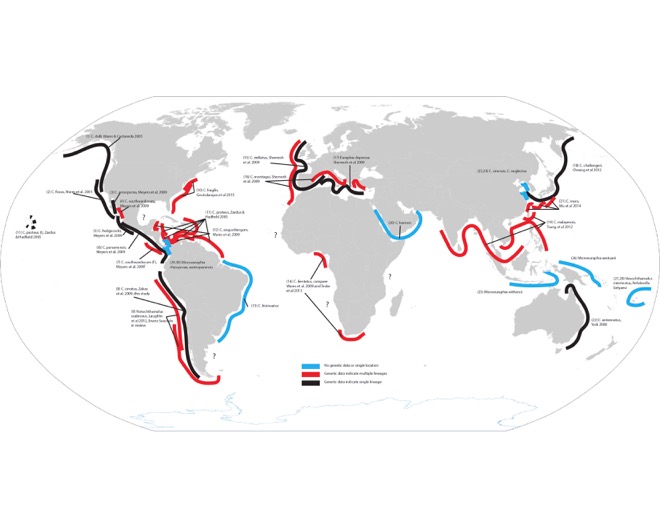
This tangled looking map is a laborious endpoint of me trying to put together what I know of diversity in the genus Chthamalus and close relatives (this includes some doubt about “close relatives” and whether Jehlius should really be Chthamalus as Darwin named it, whether the Euraphia and Microeuraphia are just clades within Chthamalus, and so on, and so it is still at best incomplete). I have a larger version of course if you want to see that. The black lines represent the studies where a nominal species has been evaluated with enough genetic data to confirm that it is, in fact, just one “thing”. The blue lines are taxa with insufficient information - maybe a single site, or none at all. And the red lines represent lineages within species that have been identified with genetic data, but have yet to be formally described as new species (and maybe that will never happen?). There are some interesting low-hanging fruit, depending on your access to certain parts of the world. For example, my work on C. dentatus that was published with Sabrina Pankey and Yair Achituv as co-authors contains very distinct diversity from the populations of C. dentatus in South Africa published by Teske et al. 2013. Benny Chan and colleagues have obviously identified a tremendous amount of diversity in southeastern Asia. Annette Govindarajan just found 3 cryptic lineages along the densely-studied east coast of North America! John Zardus showed us just how diverse “C. proteus” is in the Caribbean, and of course our work in the Chilean distribution of Notochthamalus is what had me thinking about this again.
I’d like to figure out how to make this build-able in R, so that as new data (and clades) are discovered the map can be auto-updated. For now that is slightly out of my reach in skill and time. But this is a single genus of barnacle that exhibits so much diversity genealogically, yet so little phenotypically. It is really just a phenomenon of calcareous beasts that distribute themselves everywhere, and diversify under mysterious processes. Diversity is a process, not a number. It is practically infinite in that regard (which makes it all the more stunning what a good job humanity is doing of messing up this process).
The Null Hypothesis
04/08/15 10:10
Lately I’ve been thinking a lot about the null hypothesis. That is, in effect, what we call it when we think we didn’t learn anything new or exciting from the work we have done. Of course that isn’t true: it can’t all be Science and Nature, but we have to sometimes explore the alleys and dead ends to figure out the complete landscape of a problem.
I’m working on a project like this now. Early in the summer, I was pretty excited by it. The initial data suggested a big answer was forthcoming, if we just had a larger sample size. Now, with larger sample size, the data just suggest an answer. Nothing big, but an answer.
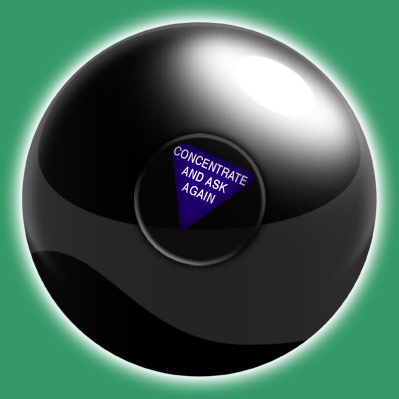
The trick for many of us scientists is that it is really easy to start projects, to get excited about something new, something that will bring respect and funding and inflate our ego. It is really difficult to finish projects - they aren’t done until they are communicated, published, available to be discussed. Even if there isn’t that much to discuss! This is what I was sort of getting at in my last post: there are a lot of projects lurking on hard drives and GitHub and DropBox in my domain that are about 90% done. The last push can be really difficult when it isn’t exciting any more.
And yet, if we don’t get it out there.... if we don’t write it down, all the steps, all the ideas that were generated from the data, all the analyses.... all of it never. happened. It never happened as far as anybody outside the lab can tell. They might be interested in trying the same thing, and if they can’t read about what we have done - they will perhaps run into the same dead ends or less exciting data.
You may have heard of “hashing”. It is a run, usually only 5k or so, where the participants don’t know the route and are trying to catch the “hares”, 2 runners leaving a trail with flour or other temporary markers. There is usually a beer stop. And, there are numerous places where the way forward is ambiguous, where the path may lead in any direction. What happens in a hash is that the fast runners tend to get to these points first, they split up and check out the different paths until they figure out which are dead trails and which one is the correct one to follow. ON-ON! they shout, and sometimes arrange sticks or scuff an arrow in the dirt to let the rest of the runners follow when they reach that intersection - on the best path.
So, we hit a few dead ends. We support a few null hypotheses. I seem to be good at that these days, and that’s OK. We’re all heading toward the same understanding in the end.
I’m working on a project like this now. Early in the summer, I was pretty excited by it. The initial data suggested a big answer was forthcoming, if we just had a larger sample size. Now, with larger sample size, the data just suggest an answer. Nothing big, but an answer.

The trick for many of us scientists is that it is really easy to start projects, to get excited about something new, something that will bring respect and funding and inflate our ego. It is really difficult to finish projects - they aren’t done until they are communicated, published, available to be discussed. Even if there isn’t that much to discuss! This is what I was sort of getting at in my last post: there are a lot of projects lurking on hard drives and GitHub and DropBox in my domain that are about 90% done. The last push can be really difficult when it isn’t exciting any more.
And yet, if we don’t get it out there.... if we don’t write it down, all the steps, all the ideas that were generated from the data, all the analyses.... all of it never. happened. It never happened as far as anybody outside the lab can tell. They might be interested in trying the same thing, and if they can’t read about what we have done - they will perhaps run into the same dead ends or less exciting data.
You may have heard of “hashing”. It is a run, usually only 5k or so, where the participants don’t know the route and are trying to catch the “hares”, 2 runners leaving a trail with flour or other temporary markers. There is usually a beer stop. And, there are numerous places where the way forward is ambiguous, where the path may lead in any direction. What happens in a hash is that the fast runners tend to get to these points first, they split up and check out the different paths until they figure out which are dead trails and which one is the correct one to follow. ON-ON! they shout, and sometimes arrange sticks or scuff an arrow in the dirt to let the rest of the runners follow when they reach that intersection - on the best path.
So, we hit a few dead ends. We support a few null hypotheses. I seem to be good at that these days, and that’s OK. We’re all heading toward the same understanding in the end.
Backlog Manifesto
05/07/15 13:25
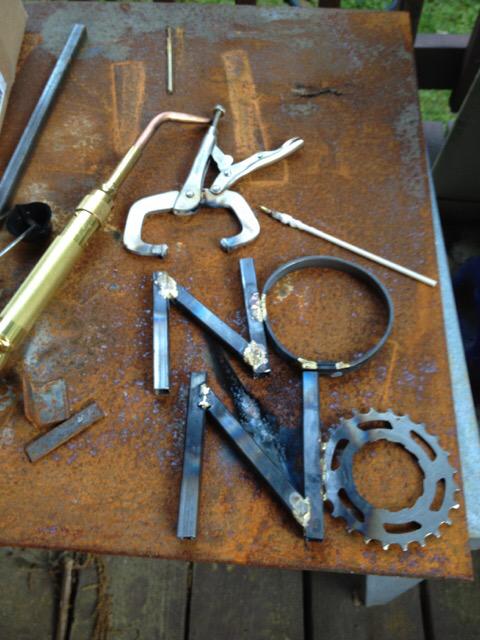
small brazing project, JPW, 2011.
Summer is a time to gain perspective, at least in the academic world where we are fortunate to have a break from teaching and committee work (or at least, less of it). For many of us, this is a time for field work and travel to conferences, a time to catch up on the writing and analysis that was put off by the pressures of teaching. It's also when we make good on a lot of promises to kids, to family, to ourselves.
I just took my first real vacation in a long time. It was unrelated to work, unrelated to research. I did as little email-checking as I needed to, though there were a few tasks to keep juggling. And it is probably really trite to come back from vacation with a clarity that "life should be more like this", but there you have it.
I have been faculty for 10 years. I've literally lost count of how many PhDs, masters, and undergrad students I have shepherded through the process of research, how many different classes I have taught, even how many of my colleagues I was on committee to hire. I'm one of the semi-old guys now. I've had plenty of funding for my research, published a lot of it. I've been graduate coordinator for 4 years, and let me tell you that is both thankless and rewarding at the same time.
What concerns me about the academic life is the pressure to keep it up, to go more and more and more. Some of this is self-inflicted, of course, but we all know the numbers games that our university administrators are running, as well. For me, this has led to a lifestyle of juggling so many different projects that I recognize fully how each is being short-changed, and the people on them as well.
When I commit to a graduate committee, or to a student being in my lab, I should be committing sufficient time to that person that they will truly gain from the interaction – not that they will have to squeeze in a few half-baked moments with me when I spend half the time recuperating my understanding of what they are doing because it has been a few weeks since we discussed it and I've had to change mental focus so many times and haven't slept well and, and, and. Period. And I worry that isn't happening.
I'm not able to read much these days; I glean. I use close to a month of work hours to being grad coordinator, probably another month to basic administration of the lab (ordering, repairing, etc.) itself, and that is not at all dismissing the work my grads put in to the same tasks. I throw myself into teaching, and have been shuffled to new teaching assignments often enough that nothing is in balance (at least it isn’t getting stale!). And most importantly, I'm having a hard time finishing what I started because I feel the pressure to start something new. This is what I'm about to tell you, needs to stop.
So, though I am on about 3 pending proposals, and associated intellectually with a couple more, I am not submitting any more this year. Or maybe next. Funding is a precious commodity for research. My effort now is not scratching my head for ideas that might be fundable, to keep the treadmill at full speed, but to focus on the ongoing work and let it identify for me what ideas need to be funded, and how. What ideas arise organically, are useful, are critical to pursue? What are the priorities? Our planet, biodiversity, public health, as well as knowledge; each of us would come up with a different list of course.
I am helping 2 students finish their PhDs, and another 6 (unless I’ve forgotten somebody, which wouldn’t be surprising) that I'm currently on their graduate committees (in the past I have been on many more at once). That feels like enough, knowing all it takes in the last push. Including those who have recently finished - a masters student, postdocs, colleagues from other labs - I have at least 20, probably many more, manuscripts that are all in various stages of being written or generated. That is enough to keep me busy for years in and of itself! I want to do this science right, to do it the best possible way, rather than frantically pushing it away to get to the next thing. The people involved deserve my attention.
Notice how committee and commitment are related...?
This also means that travel is something that I am limiting. Travel is one of the true perks of a biologist, and I have excellent and dear colleagues all over the planet at this point. I get invited for talks, I get invited for intense one-on-ones about research or collaboration, and of course there are intriguing conferences where you get the opportunity to see more of the same people but in new! exciting! places where you still drink at the bar across the street from the conference center.... and I have to say no most of the time. If I have told you “no” recently, you aren’t alone. The environmental costs of flying are high, and this is a true priority to consider. The time (and financial) costs of travel are high as well, and I have to prioritize which ones are possible in the scope of all else I do professionally and personally. I think I would be interested to see how extended teleconferencing (Google hangouts, Skype, FaceTime, etc.) could replace some of these interactions – sure, you miss the local cuisine and some beers, and some research interactions are minimized – but we shouldn't neglect this magic that has transformed our professional lives in recent years, either.
This is a long justification for why you will hear "No" from me more often than in the past. I’m not doing anything other than recognizing my career as a long-distance run rather than a sprint, I’m trying to do right by those whom I am already committed to helping, I'm trying to do justice to the science I've already committed to, and I'm trying to do what is best for my family and personal needs as well. And I promise – and some of you know I’ve been up front about this in recent requests to come give a seminar, etc. – I won’t be offended if you tell me “No” as well.
SREL
10/06/15 12:51
Three field outings in less than a month, whaaaat?
Went over to SREL yesterday for a committee meeting with one of Stacey Lance’s students, Cara Love. A great start to her dissertation work, and then a good chance to step out during light thundershowers (also thanks to David Scott) to net some tadpoles and mole salamander (A. talpoideum) metamorphs, super cute!
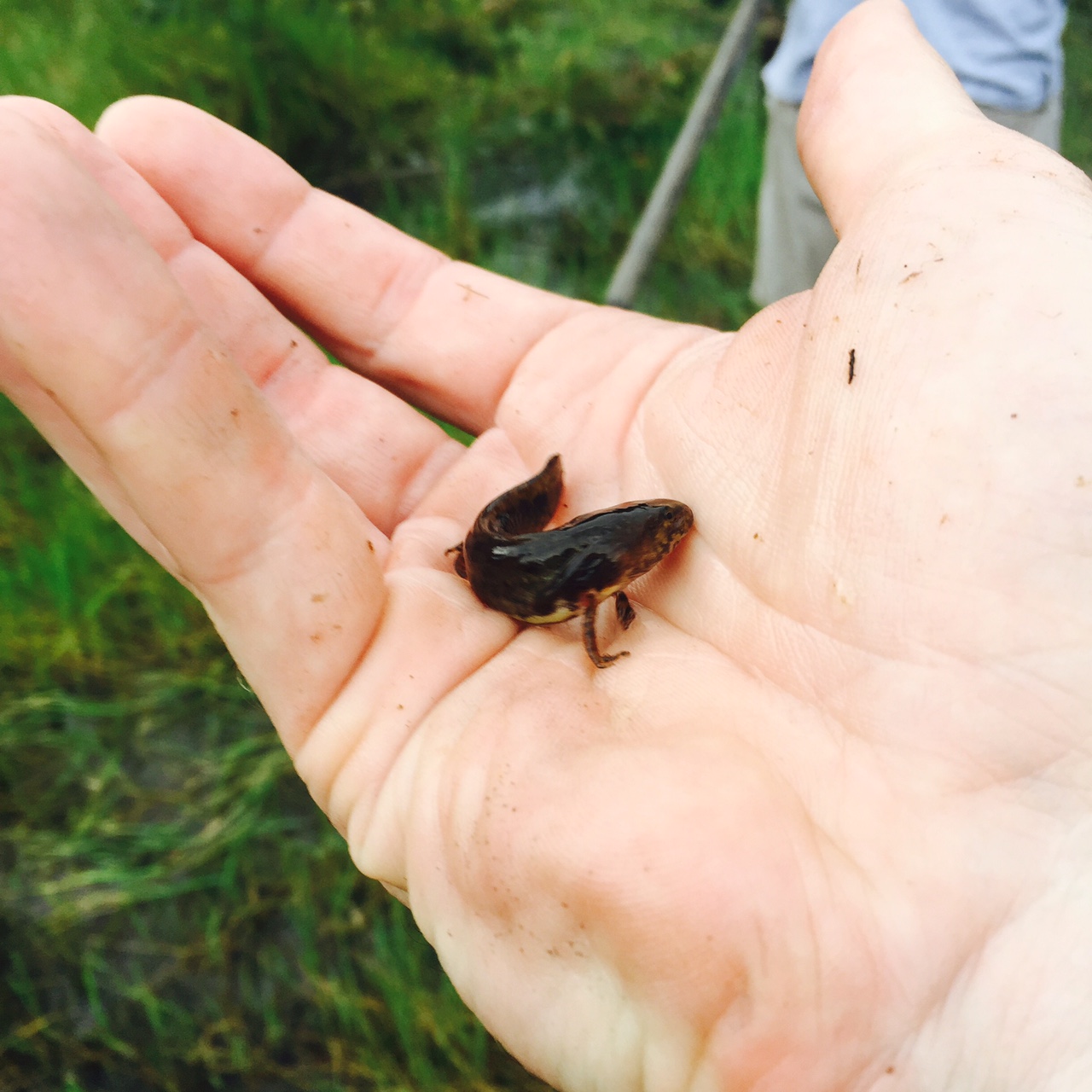
I also was given a great tour of the facilities by Cara - it sounds stupid, but after being at UGA for 10 years I really didn’t know all that was happening at SREL. It is an enviable spot to be in, surrounded by layers and layers of accessible ecology and questions about how diversity interacts with the landscape. I had a great day, thanks all.

In the Field
27/05/15 10:15
The semester is over! Tralalalalalalaaaaaa!!
Hey, I love teaching. And there are parts of my job that I love. But most of those parts are concentrated in the few days a year when I’m working, but not in my building. Right now none of my projects are in active need of field sampling or monitoring or measuring anything, so I am living vicariously through my students. Christine led an expedition out to Sapelo last week, where the UGA Marine Institute put us up in a house on the marsh for 5 days of finding horseshoe crabs (for their Chelonibia epibionts - Christine’s dissertation beast), exploring the marsh, teaching my 8-year-old the taxonomy of fiddler crabs, a little beach time, and a lot of writing and excellent together time, all of it much needed.
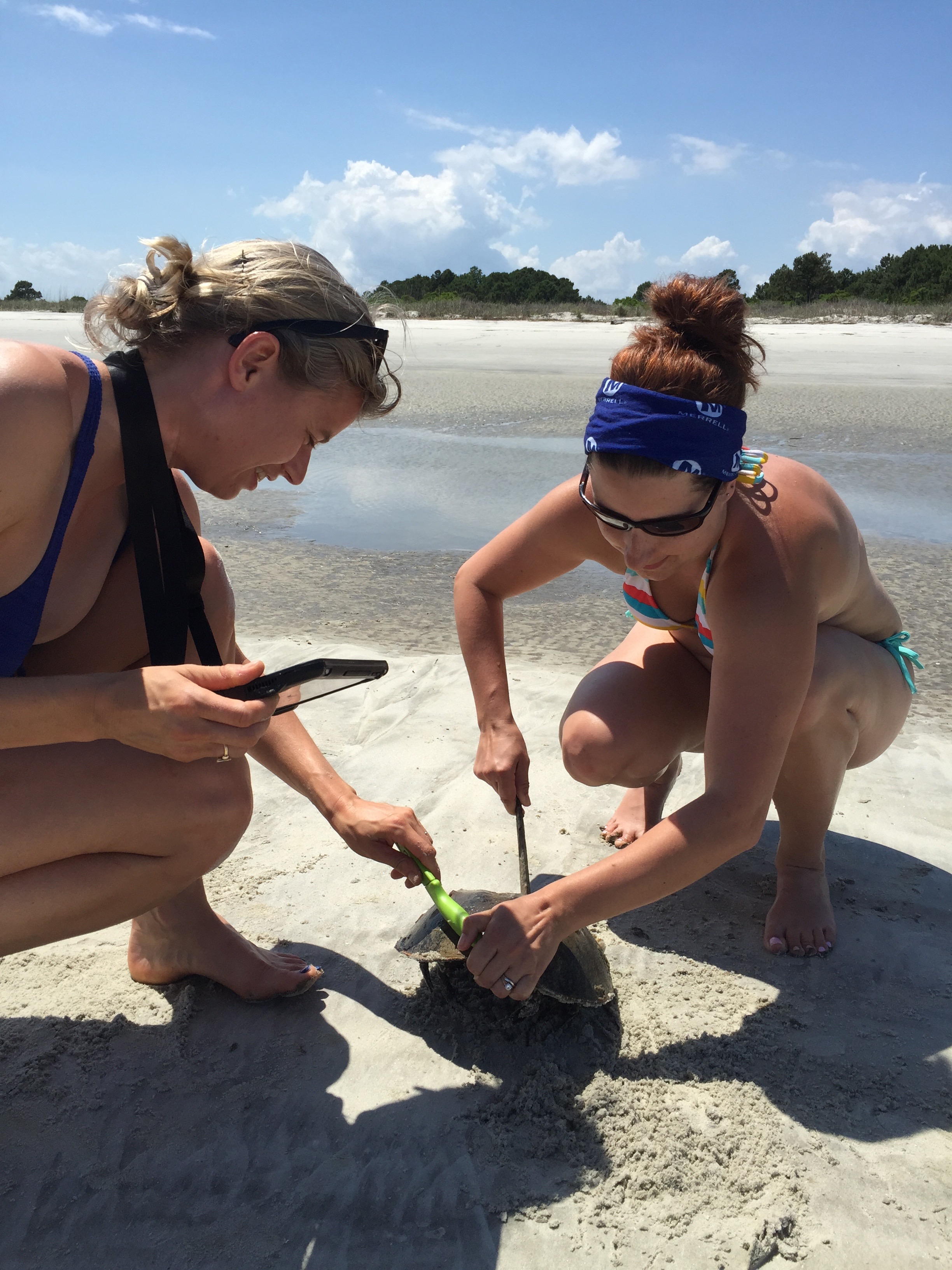
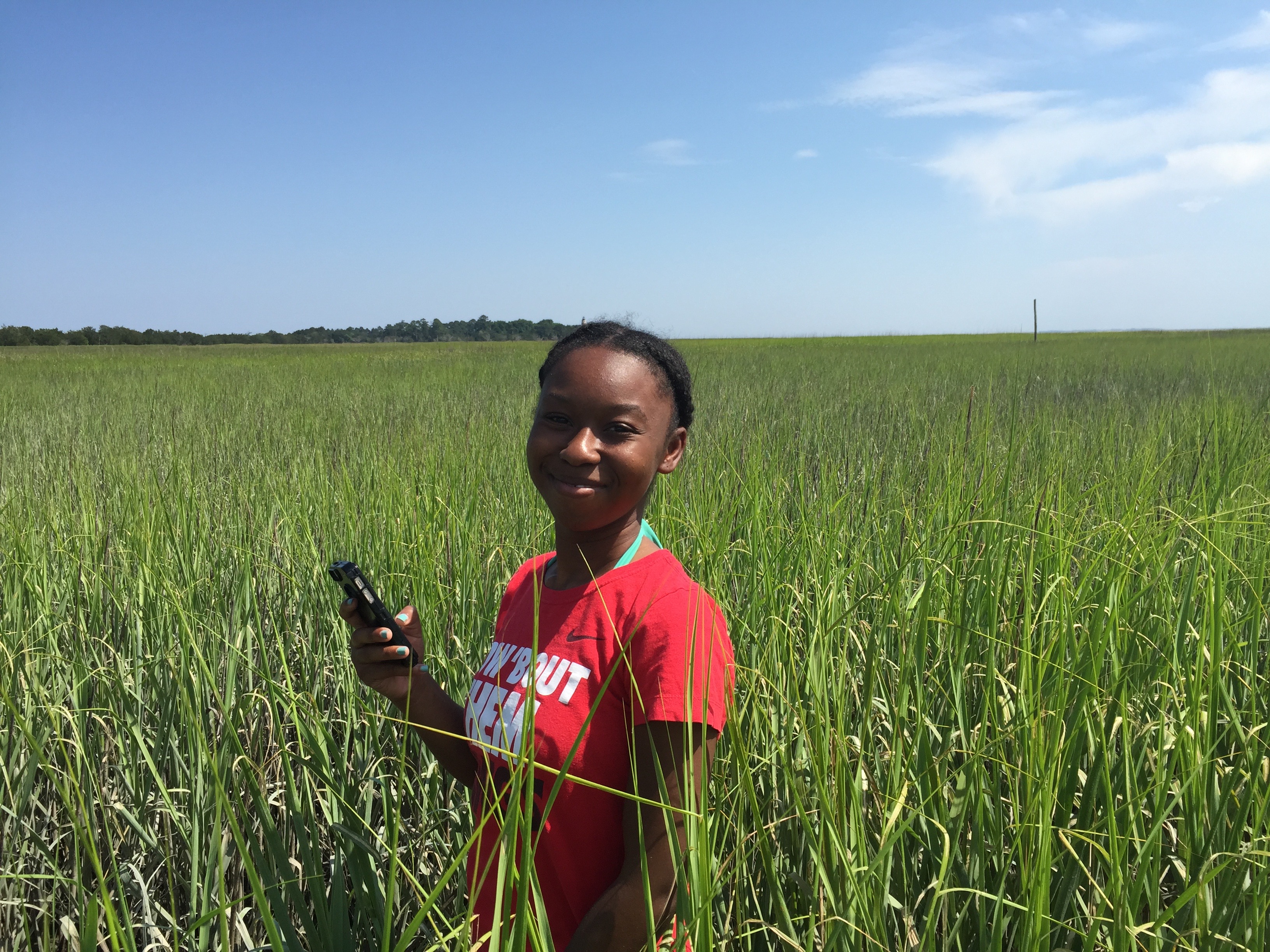
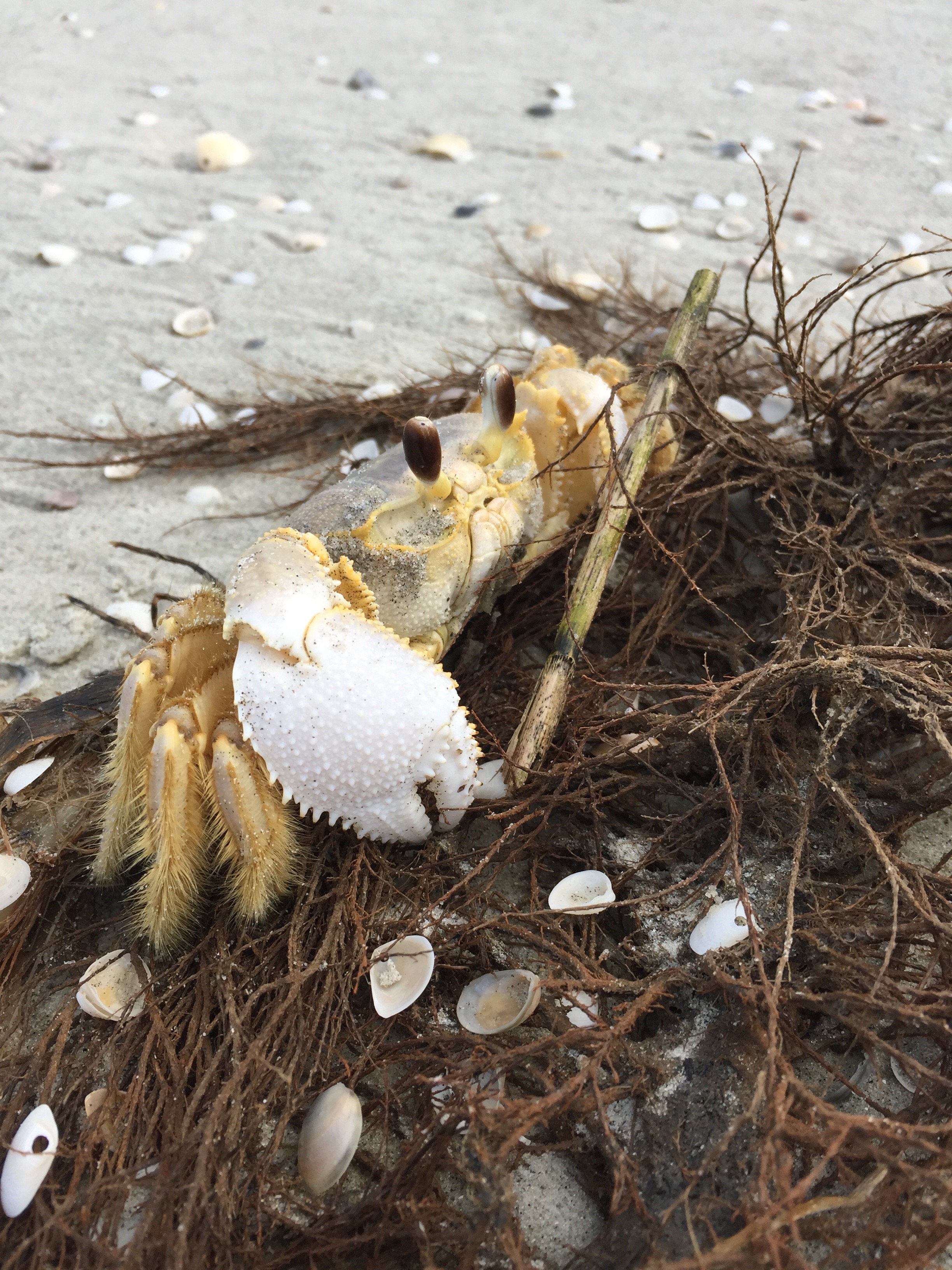
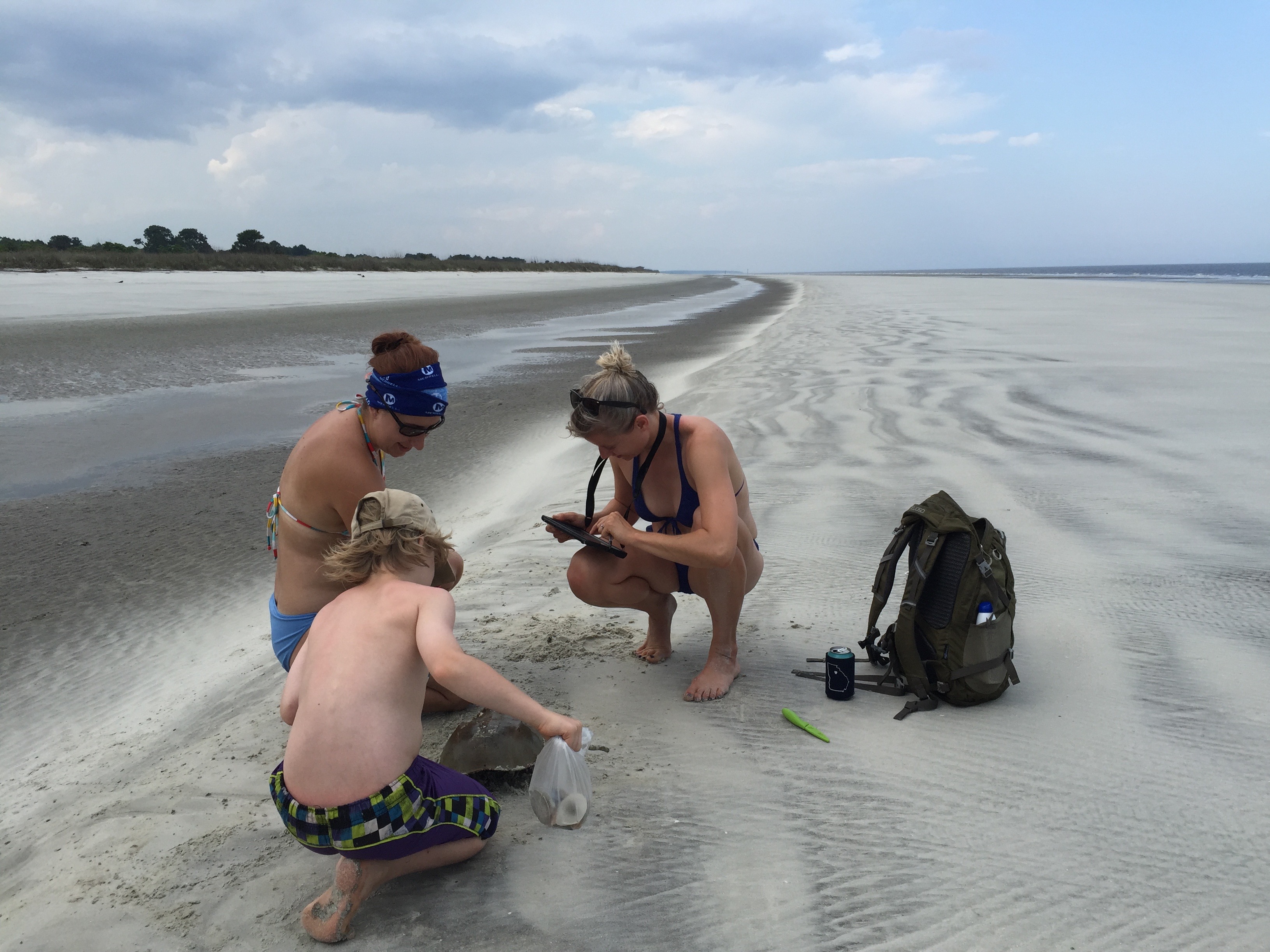
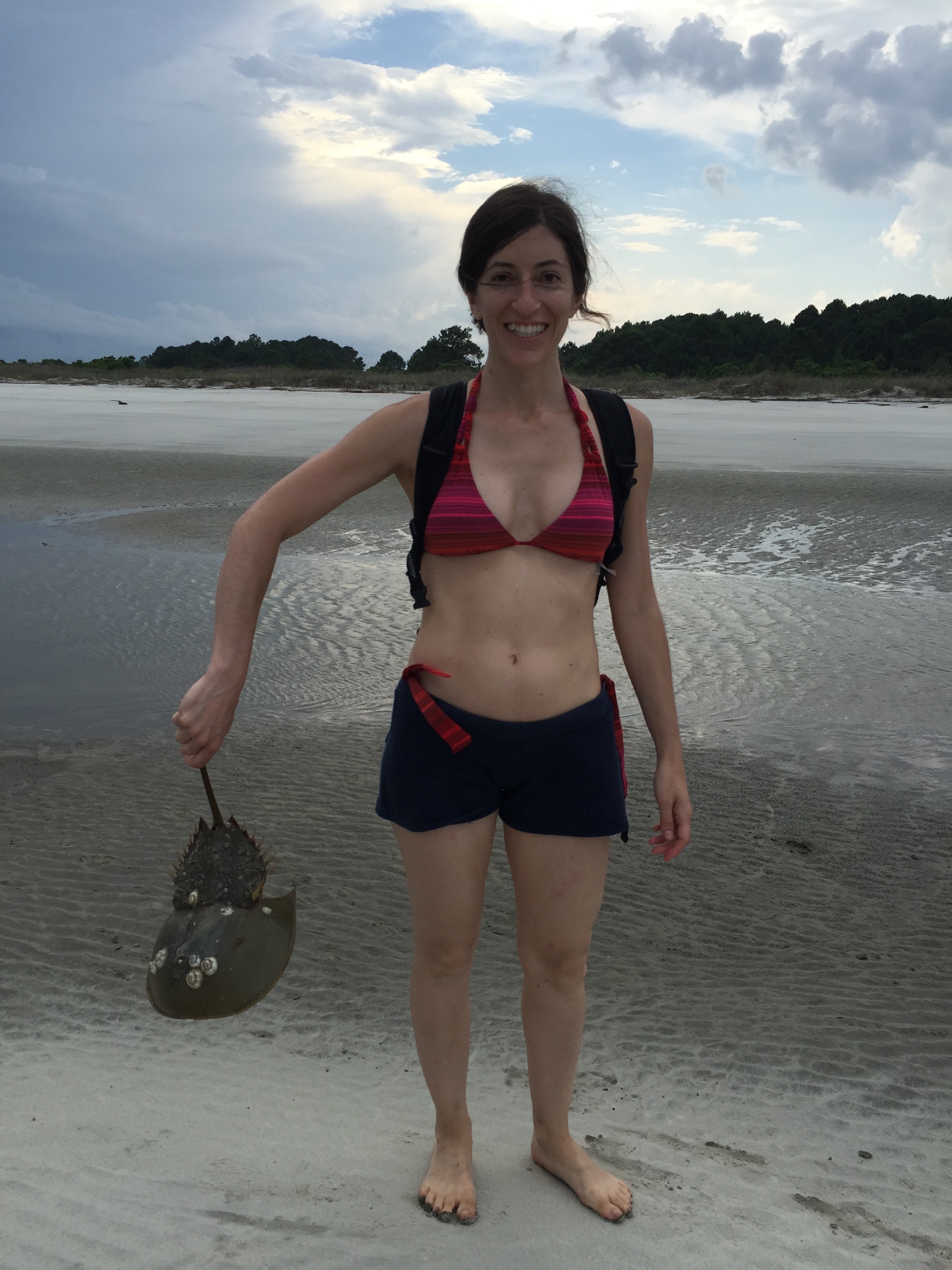
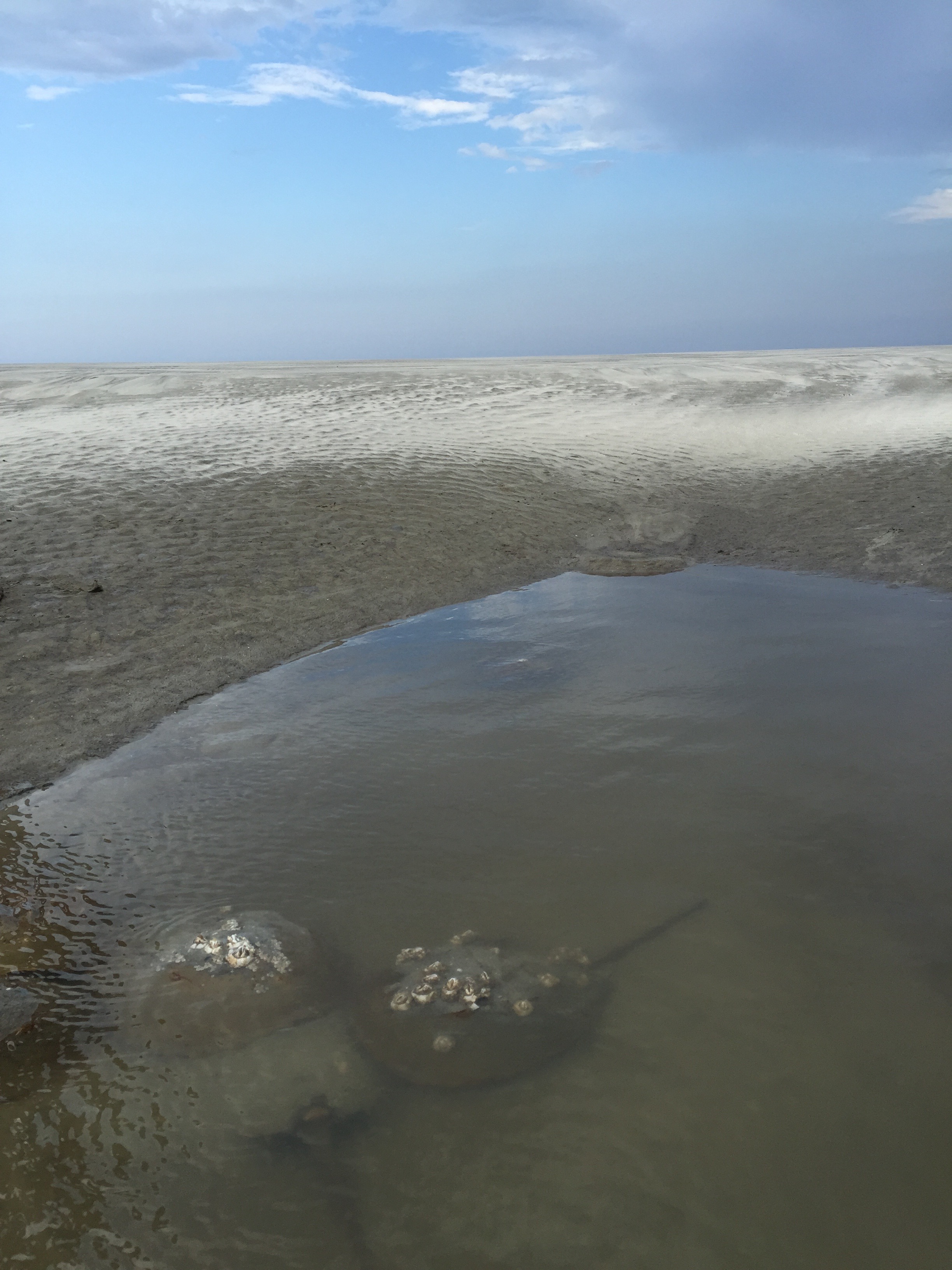
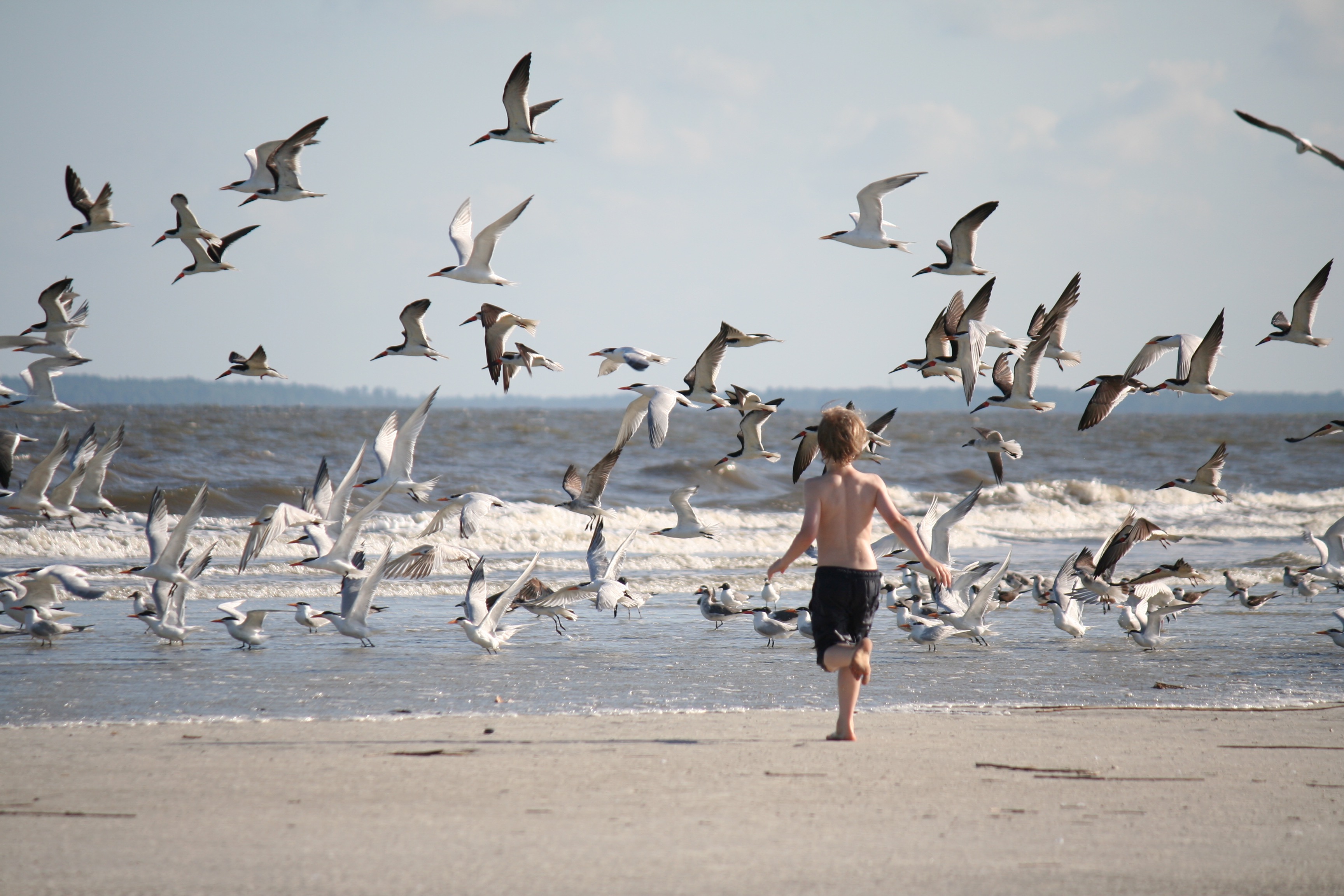
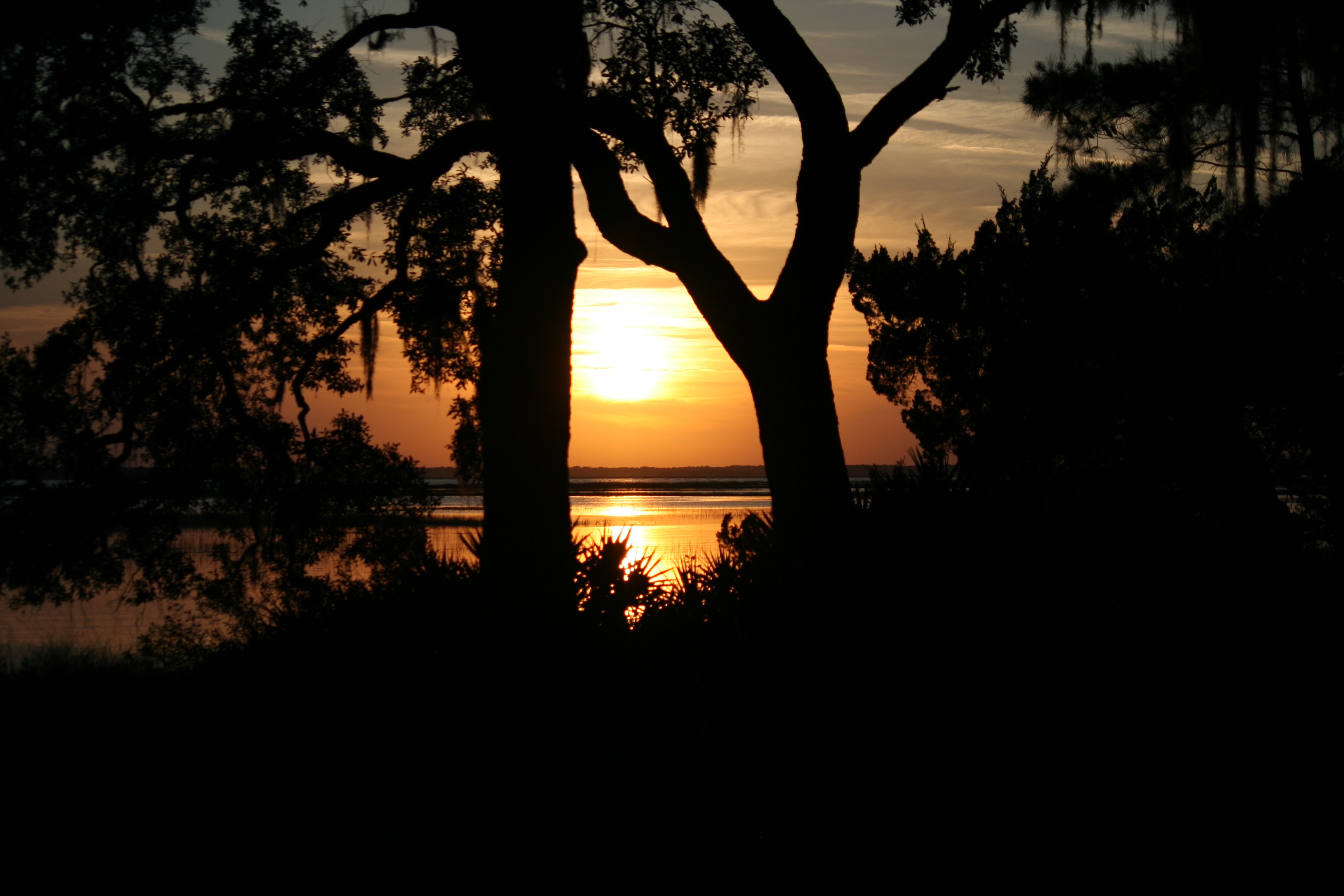
It goes without saying I have about 200 more pictures as good as those or better. We got our quarry, maybe 1-2 more field trips for Christine on her way to doctorhood! We were all sad to leave Sapelo (the loss of a day in cleaning, driving, unpacking, exhaustion, back to building), but quickly got to look forward to the next trip - south central Georgia for a day on a river with Katie Bockrath and Mary Freeman’s fish crew, who helped get us a second round of mussel hosts collected on a beautiful day before a big storm. The timing is everything - water temperature, how high the stream is running, whether it is storming of course, whether we can round up a truck on short notice (not to mention a crew) - and this was almost effortless for once!
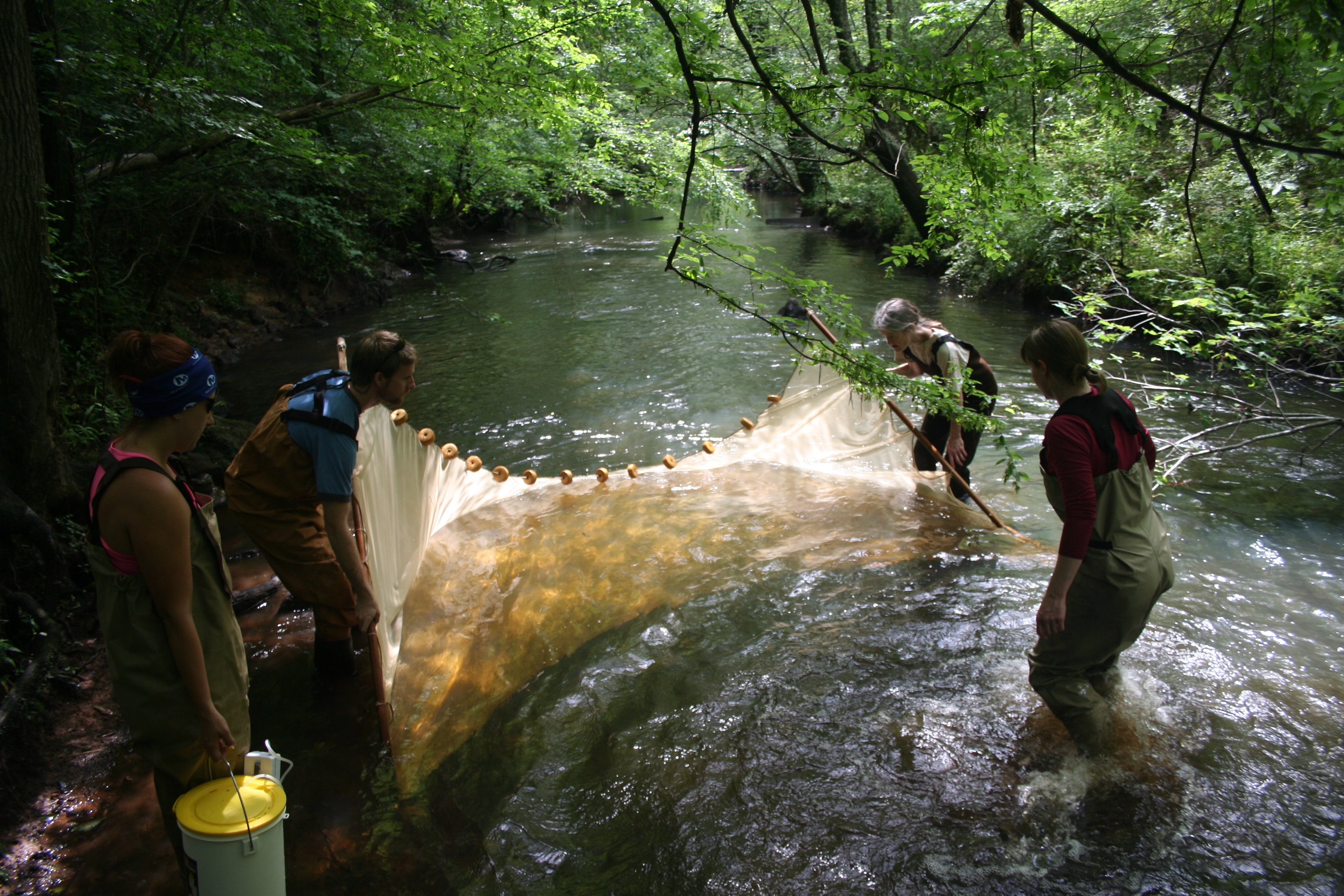

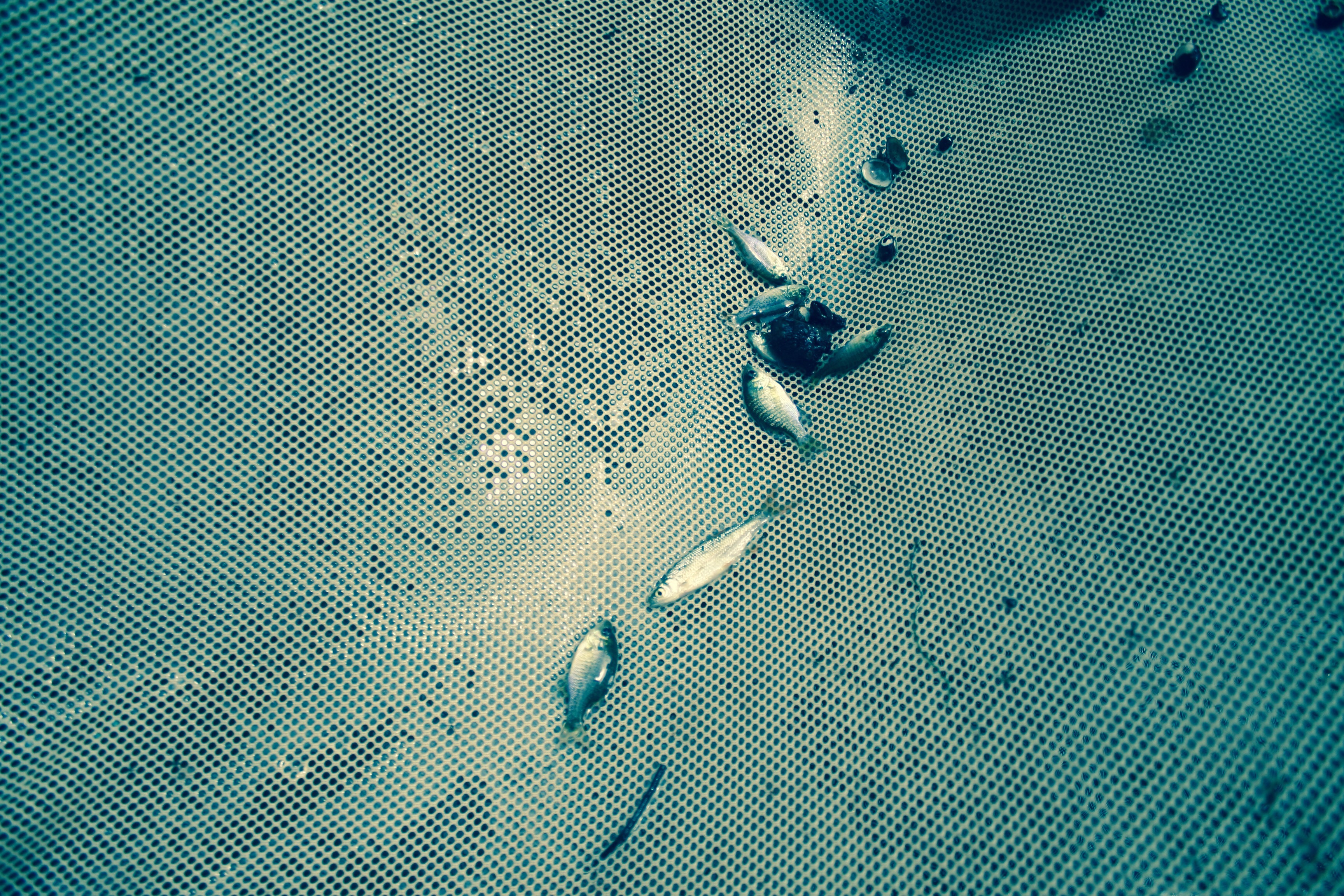
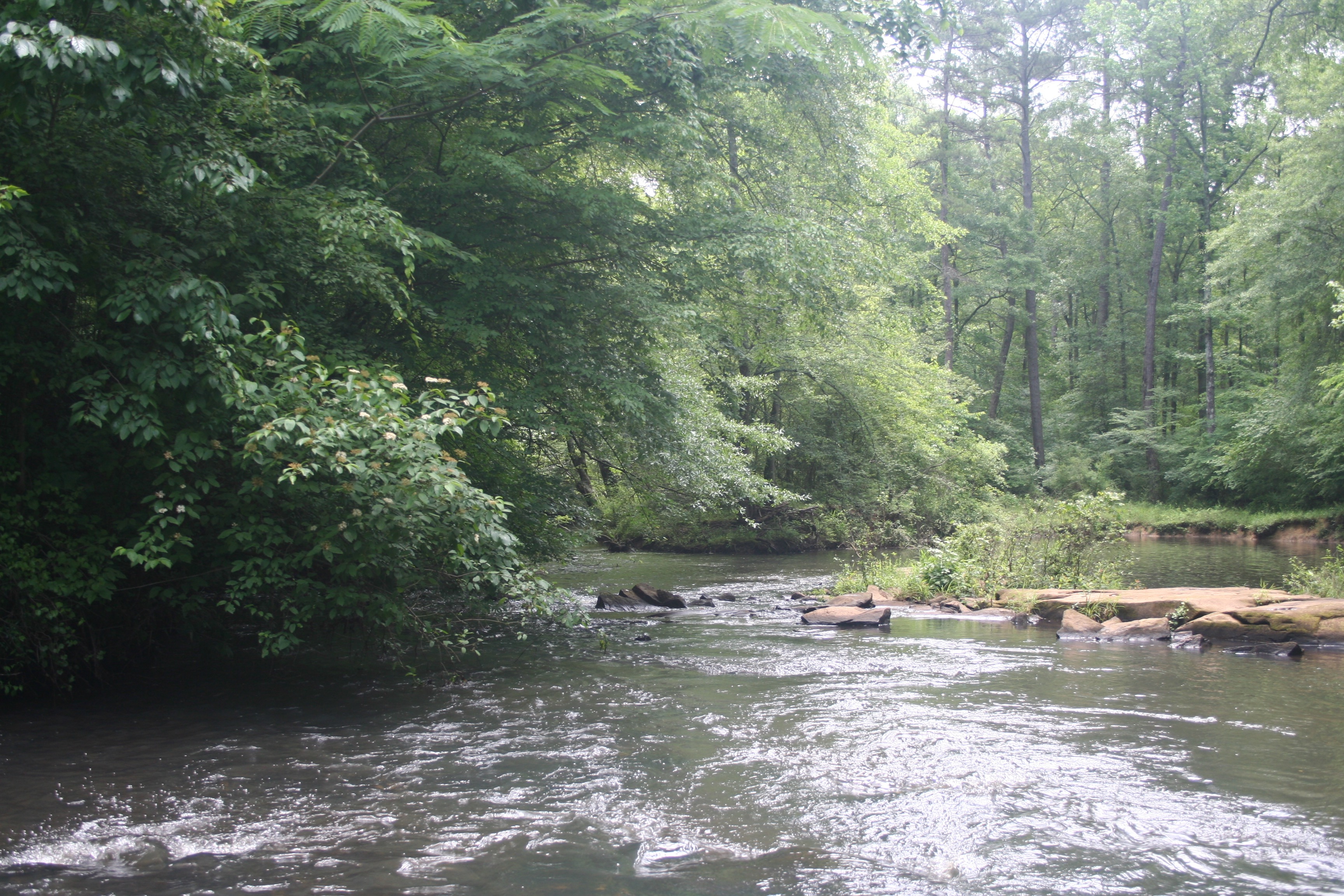
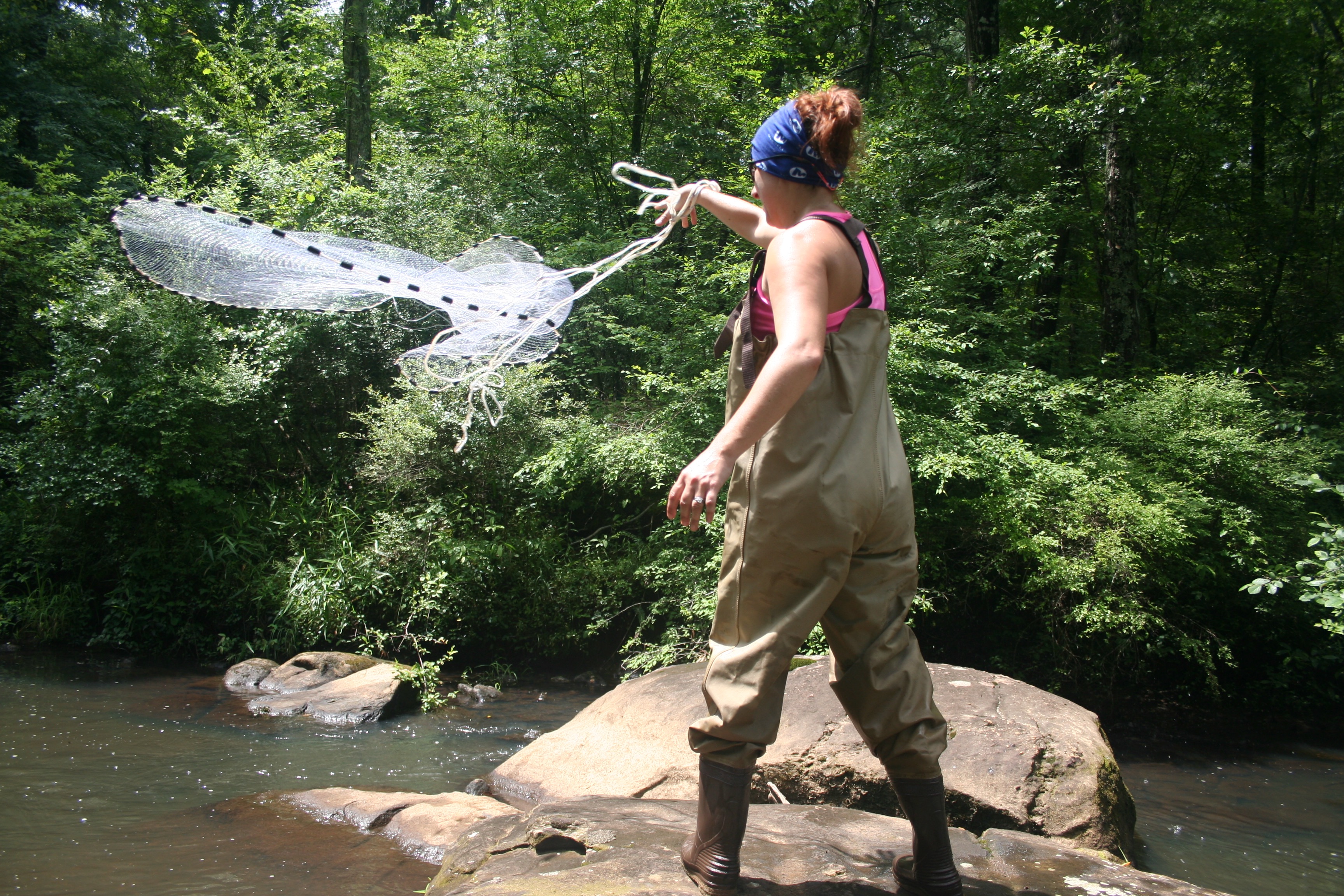
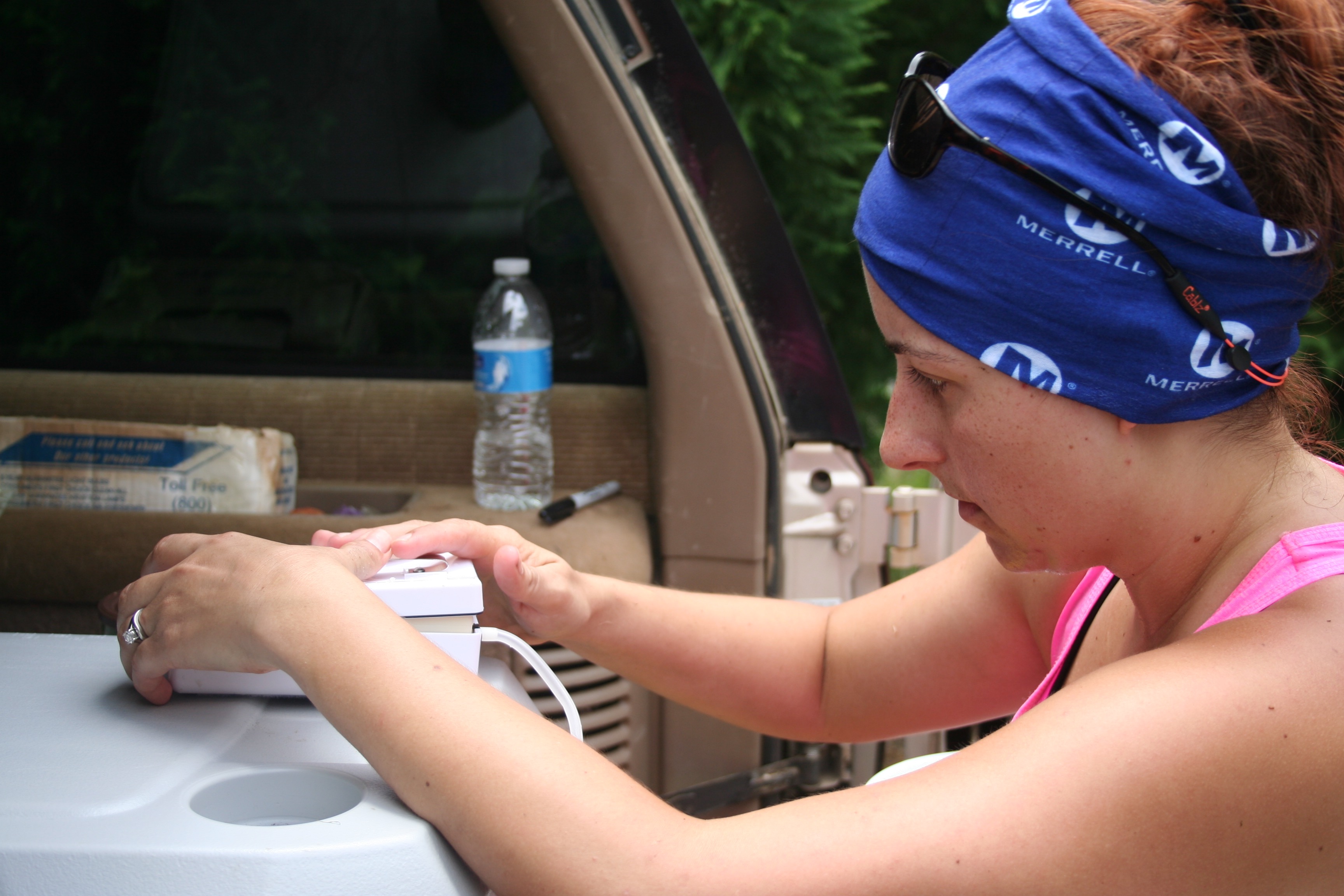
Thanks to everybody in the lab and otherwise who helped on these trips, in any way - these are the days I most feel like a biologist.
Hey, I love teaching. And there are parts of my job that I love. But most of those parts are concentrated in the few days a year when I’m working, but not in my building. Right now none of my projects are in active need of field sampling or monitoring or measuring anything, so I am living vicariously through my students. Christine led an expedition out to Sapelo last week, where the UGA Marine Institute put us up in a house on the marsh for 5 days of finding horseshoe crabs (for their Chelonibia epibionts - Christine’s dissertation beast), exploring the marsh, teaching my 8-year-old the taxonomy of fiddler crabs, a little beach time, and a lot of writing and excellent together time, all of it much needed.








It goes without saying I have about 200 more pictures as good as those or better. We got our quarry, maybe 1-2 more field trips for Christine on her way to doctorhood! We were all sad to leave Sapelo (the loss of a day in cleaning, driving, unpacking, exhaustion, back to building), but quickly got to look forward to the next trip - south central Georgia for a day on a river with Katie Bockrath and Mary Freeman’s fish crew, who helped get us a second round of mussel hosts collected on a beautiful day before a big storm. The timing is everything - water temperature, how high the stream is running, whether it is storming of course, whether we can round up a truck on short notice (not to mention a crew) - and this was almost effortless for once!






Thanks to everybody in the lab and otherwise who helped on these trips, in any way - these are the days I most feel like a biologist.
Graduation
08/05/15 16:02
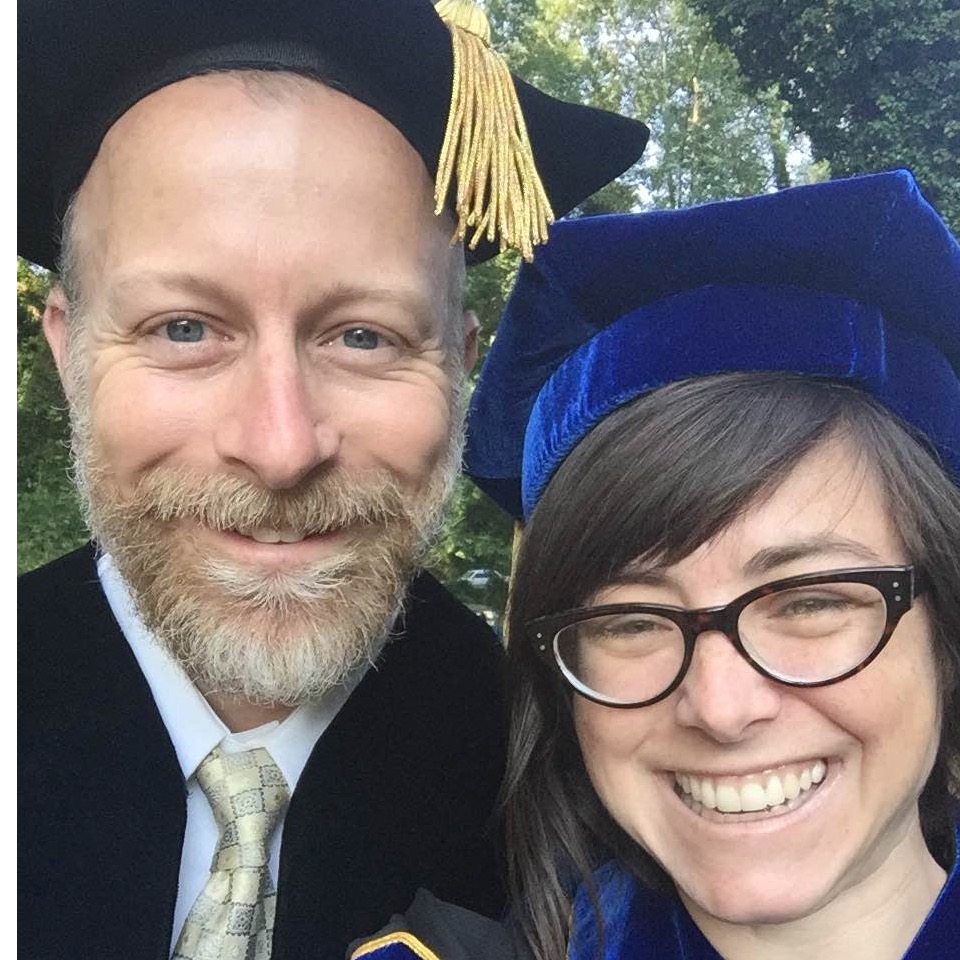
Congratulations and many hugs for Dr. Jenna Hamlin, who I had the honor of walking across the stage today. Our lab and department won’t be the same without you. May the wind be always at your back, Jenna. She is leaving to do her postdoc work with Leonie Moyle at Indiana University!
Coordinate This
09/04/15 17:20
I really had no idea what I was getting myself into becoming the graduate coordinator. Sign some papers, answer some emails, make a few decisions here and there, try and do so with promptness and a smile. There is very little training for such a job of course. I am human resources, making decisions about who will be an incoming student (with help from grad admissions committees of course). I am psychologist and therapist (completely untrained), working with faculty and students who carry unbelievable amounts of stress through their (our) days about our careers, our hopes, our wonderings about science - sometimes this leads to conflict, sometimes to tears, sometimes to great things and celebrations.
Graduate coordinators answer to their department - both faculty and students - and in particular to the administration. The administration is the Department, the graduate school, the university and all of its needs. We are supposed to grow the numbers of students, but take care of the ones we have in the best ways possible. We don’t want to lose any unnecessarily. We evaluate progress and have to write kind but firm emails, over and over and over and over.
Sometimes we have to pull strings, to make things work that otherwise don’t on paper - there are too many details to be explained by a few rules. We know all the dramas, we know too many secrets. I can tell you, I wish I didn’t. That doesn’t mean I don’t want the job: if I must be an administrator, I’m happy to do it on behalf of the graduate students. Most of the creativity and enthusiasm I see among scientists comes from that same awesome exuberant youth that is associated with great rock and roll, amazing inventions, the desire for athletic greatness. And we have that drive in truckloads around here!
Still, I’m just saying, it is hard. It takes a lot of time. It means I’m handling responsibility for so many people, and I’m almost guaranteed to mess up from time to time. I give it my best - and then breathe a sigh of relief as each one makes it to their defense and moves on toward even greater success. Have to breathe deep because come fall I’ll be holding my breath to see how all the new students fare.
Graduate coordinators answer to their department - both faculty and students - and in particular to the administration. The administration is the Department, the graduate school, the university and all of its needs. We are supposed to grow the numbers of students, but take care of the ones we have in the best ways possible. We don’t want to lose any unnecessarily. We evaluate progress and have to write kind but firm emails, over and over and over and over.
Sometimes we have to pull strings, to make things work that otherwise don’t on paper - there are too many details to be explained by a few rules. We know all the dramas, we know too many secrets. I can tell you, I wish I didn’t. That doesn’t mean I don’t want the job: if I must be an administrator, I’m happy to do it on behalf of the graduate students. Most of the creativity and enthusiasm I see among scientists comes from that same awesome exuberant youth that is associated with great rock and roll, amazing inventions, the desire for athletic greatness. And we have that drive in truckloads around here!
Still, I’m just saying, it is hard. It takes a lot of time. It means I’m handling responsibility for so many people, and I’m almost guaranteed to mess up from time to time. I give it my best - and then breathe a sigh of relief as each one makes it to their defense and moves on toward even greater success. Have to breathe deep because come fall I’ll be holding my breath to see how all the new students fare.
Fragmentation
18/03/15 14:04
Another day, many meetings. The academic world is one of much urgency - and some days, I’m concerned that all this urgency is more about assembling the machine that lets us do our work, rather than just doing our work.
Also, I’ve self-imposed some new duties upon my schedule: I have a new computer (a beautiful Mac Pro with gobs of memory to replace my Mac Mini that was just underpowered for my needs). That means moving things around, and attempting to reorganize these things. I have 10 years worth of data, photos, manuscripts, ideas, letters, you name it.... and it is becoming a more frequent quest of luck to find things when colleagues request them. The hope is that even if nobody sees my hard drive, I am improving the feng shui of how it is arranged, how the information is arranged, and perhaps I’ll put a mirror and an auspicious color in there as well to somehow maintain my good fortune so far.
Better news, better mood: Mary Rougeau Browning passed her MS defense with flying colors on Tuesday, the lab’s first master’s student and she did fantastic work. Mary was exploring how to use math and models from community ecology and biogeography to explore the cellular organization of mammalian thymus, an important model for understanding immune development in vertebrates. This is an extreme outreach branch from the coral disease work that has been going on at UGA with my colleagues and I, and very exciting collaboration between Mary, myself, Andrew Park, and Nancy Manley. Great job Mary!
Also, I’ve self-imposed some new duties upon my schedule: I have a new computer (a beautiful Mac Pro with gobs of memory to replace my Mac Mini that was just underpowered for my needs). That means moving things around, and attempting to reorganize these things. I have 10 years worth of data, photos, manuscripts, ideas, letters, you name it.... and it is becoming a more frequent quest of luck to find things when colleagues request them. The hope is that even if nobody sees my hard drive, I am improving the feng shui of how it is arranged, how the information is arranged, and perhaps I’ll put a mirror and an auspicious color in there as well to somehow maintain my good fortune so far.
Better news, better mood: Mary Rougeau Browning passed her MS defense with flying colors on Tuesday, the lab’s first master’s student and she did fantastic work. Mary was exploring how to use math and models from community ecology and biogeography to explore the cellular organization of mammalian thymus, an important model for understanding immune development in vertebrates. This is an extreme outreach branch from the coral disease work that has been going on at UGA with my colleagues and I, and very exciting collaboration between Mary, myself, Andrew Park, and Nancy Manley. Great job Mary!
Future Grad Students
06/02/15 11:47
Seems like a good idea to clarify why my website says that I'm not taking students next year. My 3 NSF grants are all coming down to their final trickle, with reports due in the coming months. I'm applying for more funding, but it is going to be lean until I figure out that next big idea that a funding agency or donor believes is truly useful. At the University of Georgia, there are plenty of resources to make sure that a student will get paid if they come here to do graduate work, but if I don't have funds there is a greater likelihood that such a student will be spending 10-15 hours a week as a teaching assistant (nothing wrong with that, but time is precious) for many of their semesters. I think teaching experience is fantastic and I encourage it, but you'd like to have a break sometimes too! Additionally, doing good science costs money. Travel. Field gear. Data. To do it the way you should want to do it, you need good resources, and some of that can be scraped up yourself as a graduate student. My students have been very good so far at getting small grants to support their work. My feeling is, however, that when at least some of your work already has financial support, that indicates that somebody - NSF, USFW, GDNR, whoever - thinks it could be useful. And that's why we are in this game, trying to figure out the world so our understanding can make lives better (whether they are human lives or octopus lives, I'm equal opportunity when it comes to sentient beings!). So, I'm all about mentoring and helping young scientists do their work better, learn what they need to learn. Just be sure to make your decisions about joining any department, any university, any lab, with eyes wide open about where your best opportunities lie.
I'm sure I've used this xkcd before, it is just too good....

I'm sure I've used this xkcd before, it is just too good....

Ecology
16/01/15 16:49
I'm pleased to announce that a portion of me - in payroll terms - is now happily part of the Odum School of Ecology, the building next door to where my lab is in the Department of Genetics, at the University of Georgia. As I have spent 10 years at the University of Georgia, I think it could easily be said that I have spent my time training others in their careers, and figuring out where my career itself is going. While I know my way around genotypic data, and teach evolutionary biology, and know the bioinformatic tools for transcriptomics, my collaborators are not other geneticists - they are other zoologists, oceanographers, and ecologists. The work that has happened in my lab has included studying diet in isopods, the distribution of subspecies, thermal tolerances, comparisons of genetic and species diversity, population delimitations, modeling of dispersal polymorphisms, gene flow and marker development, metapopulation dynamics, diversity interactions with diet restriction, phylogeny, diversity of coral reefs, the distribution of barnacle species and sexes of individuals within those species, interactions of species, interactions of cells, biogeography .... I have no problem calling myself an ecologist as well as evolutionary biologist. I'll wear that badge proudly as well.
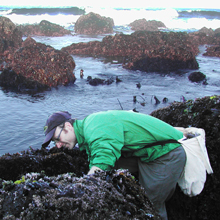

Ten Years
02/01/15 09:16
Ten years ago pretty much to the day, I got the key and unlocked C328 Life Sciences Building at the University of Georgia. Without going into all the gory detail of innumerable committees, proposals attempted, and the minutiae of academic life, I am very glad to look back on all the lab has been and what it has become. The Wares Lab has graduated 5 Ph.D. students to date: Tina Bell was first to join and did a very nice dissertation on the evolutionary ecology and phylogeography of the isopod Idotea balthica. Scott Small was second and also did some extraordinary work focused on freshwater mussel distribution, ecology, and population genetics. In the next two years we gained Meredith Meyers (evolution and ecology of Agariciid corals), John Robinson (who has done some excellent work in computational population genetics, not only his Daphnia work with me but also fantastic ABC work with Greg Moyers and Mike Hickerson), and Christina Zakas (studying the evolution of poecilogony in the polychaete Streblospio). So right there that is four phyla in the lab. Tina is now an assistant professor at Brevard College; Scott a postdoc at Case Western; Meredith is working in La Jolla, CA. Christina Zakas is a postdoc with Matt Rockman, where she has become a "real" genomicist (and will be applying for a faculty job at your school soon, you should hire her), and John Robinson is now with South Carolina DNR.
Right now we are working hard to add 2 Ph.D.s to this list - Katie Bockrath and Christine Ewers-Saucedo joined the lab in 2010, working on freshwater mussels and barnacles respectively (so, no new phyla there), and should be finishing up this year. Mary Browning is our first M.S. student, examining the distributional ecology of cells in mouse thymus (+1 phylum, though a few fish papers from the lab as well).
Postdocs? We've had them of course, Edgardo Diaz-Ferguson (with USFW in south Georgia now), Christina Zakas (after her Ph.D., helped me with some next-gen sequencing work in barnacles), Ron Eytan (working on microbial diversity in Caribbean corals, now faculty at Texas A&M Galveston), Safra Altman (working on biogeography in the North Atlantic), and Paula Pappalardo (current postdoc, doing wonderful work, some of it just published in Ecography!). Dusty Kemp has been a postdoc working with me for years, but now he is on my payroll so I should count him as well - a lot of tremendous effort on the ecology and disease dynamics of corals to be coming from Dusty in the next year.
As much as anything though I appreciate the undergraduates and post-bac workers the lab has had. Sabrina Pankey, who went on to get her Ph.D. with Todd Oakley at UCSB, was absolutely invaluable as the lab got its feet under it, and she got some nice papers out of her work as well (echinoderms so now 6 phyla). Nicole Umberger was a very hard worker, now a doctoral student at Emory. And Kelly Laughlin also served as technician for about a year, got a first-author paper working on barnacle diversity, and went on to work with Eric Sanford at Bodega Marine Lab.
Current undergrads include Neva Hope, Danielle Heubel, and Leah Besch - all valued members of the lab. But over the years the undergrads have set a high bar! John Binford was an extraordinary, hilarious, talented Honors student - my first Honors thesis, and probably the only one I'll have published that has martini glasses marking the collection locations for Notochthamalus along the Chilean coast. He is now an MD from Yale. Clare Scott did the lab's first work on fish (yellowfin shiners) and went on to graduate school, with a Ph.D. in entomology from Florida. Collin Closek worked in the lab for about a year and just got his Ph.D. from Penn State, working with Monica Medina. Madeline Cozad worked in the Peace Corps after being an REU student and LTER tech. Becky Miller, an REU student who worked on fungal phylogeny. Jesyka Melendez is a Ph.D. student at Berkeley, and was instrumental in my 2010 Evolution paper as it developed. Very fast learner. Laura Paynter and Mary Pierce Zirkle, Dhara Patel, Kerem Kiliç, Bekah Lee, Hayley Glassic, all finished recently or will soon. Melissa Merrill was our first art school undergrad employed in the lab, she did some nice barnacle illustration work for Christine and I.
So that is a lot of scientists that have somehow passed through my lab in 10 years. I have been fortunate to collaborate with a large number of friends and colleagues at the University of Georgia (mostly in the Odum School of Ecology, which I have just recently joined as faculty in addition to being in the Department of Genetics) and elsewhere, and in particular I've been lucky to gain colleagues up and down the coast of Chile: Pilar Haye, Bernie Broitman, Sergio Navarrete, Cris Gallardo, Elie Poulin, Sylvain Faugeron, and more. Bud Freeman (Ecology, GMNH) is a standing member of our lab group and helps flesh out the fish and arthropod (spiders!) work in the lab. Jeb Byers and Jamie Pringle and I have had 2 grants together, here's to more...
A few NSF grants, LTER funding, National Geographic funding, BSF, and internal funds have taken us a long way, from making the bold move to use 12S primers to amplify gut contents in isopods to having next-generation sequence and transcriptome data filling many hard drives and choking our 12-core 96GB RAM computer on a regular basis (of course, we also sometimes get in trouble overabusing the research cluster at UGA).
But progress isn't just measured in terabytes and publications. I'm happier now with my lab than ever; part of that may be comfort that comes with tenure and accomplishment, but much of it has to do with the fantastic attitude of mixing an intense appreciation for science, open communication, and good times with the people in the lab now. We have caught horseshoe crabs together, waded through rivers together, stared at computer screens endlessly, gone on writing retreat, traveled together, and yes had a few beers. And pisco sours. More than a few maybe.
I write this in appreciation for having a ridiculously fortunate job: I am paid handsomely to think about esoteric topics, to discuss these things and make advances with my students, to teach the bright and enthusiastic undergraduates at the University of Georgia, to travel, and be a part of the wonderful city of Athens, Georgia. I work here with members of the Southern Off-Road Bicyclists Association to build trails and develop the support network for mountain biking, partly for selfish reasons but mostly because I love it when my kid – now 8 – or another is whooping with joy on a trail I've built.
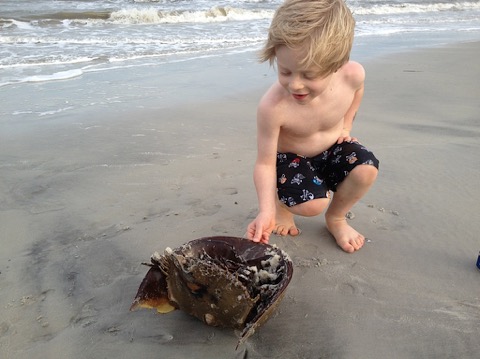
Ten years. I better get back to writing this NSF preproposal to set the stage for the next 10 years. I hope I didn't leave too many people out, there are of course countless folks involved, colleagues, staff, students, IT support, bioinformaticians, editors. Thanks all and happy new year.
Right now we are working hard to add 2 Ph.D.s to this list - Katie Bockrath and Christine Ewers-Saucedo joined the lab in 2010, working on freshwater mussels and barnacles respectively (so, no new phyla there), and should be finishing up this year. Mary Browning is our first M.S. student, examining the distributional ecology of cells in mouse thymus (+1 phylum, though a few fish papers from the lab as well).
Postdocs? We've had them of course, Edgardo Diaz-Ferguson (with USFW in south Georgia now), Christina Zakas (after her Ph.D., helped me with some next-gen sequencing work in barnacles), Ron Eytan (working on microbial diversity in Caribbean corals, now faculty at Texas A&M Galveston), Safra Altman (working on biogeography in the North Atlantic), and Paula Pappalardo (current postdoc, doing wonderful work, some of it just published in Ecography!). Dusty Kemp has been a postdoc working with me for years, but now he is on my payroll so I should count him as well - a lot of tremendous effort on the ecology and disease dynamics of corals to be coming from Dusty in the next year.
As much as anything though I appreciate the undergraduates and post-bac workers the lab has had. Sabrina Pankey, who went on to get her Ph.D. with Todd Oakley at UCSB, was absolutely invaluable as the lab got its feet under it, and she got some nice papers out of her work as well (echinoderms so now 6 phyla). Nicole Umberger was a very hard worker, now a doctoral student at Emory. And Kelly Laughlin also served as technician for about a year, got a first-author paper working on barnacle diversity, and went on to work with Eric Sanford at Bodega Marine Lab.
Current undergrads include Neva Hope, Danielle Heubel, and Leah Besch - all valued members of the lab. But over the years the undergrads have set a high bar! John Binford was an extraordinary, hilarious, talented Honors student - my first Honors thesis, and probably the only one I'll have published that has martini glasses marking the collection locations for Notochthamalus along the Chilean coast. He is now an MD from Yale. Clare Scott did the lab's first work on fish (yellowfin shiners) and went on to graduate school, with a Ph.D. in entomology from Florida. Collin Closek worked in the lab for about a year and just got his Ph.D. from Penn State, working with Monica Medina. Madeline Cozad worked in the Peace Corps after being an REU student and LTER tech. Becky Miller, an REU student who worked on fungal phylogeny. Jesyka Melendez is a Ph.D. student at Berkeley, and was instrumental in my 2010 Evolution paper as it developed. Very fast learner. Laura Paynter and Mary Pierce Zirkle, Dhara Patel, Kerem Kiliç, Bekah Lee, Hayley Glassic, all finished recently or will soon. Melissa Merrill was our first art school undergrad employed in the lab, she did some nice barnacle illustration work for Christine and I.
So that is a lot of scientists that have somehow passed through my lab in 10 years. I have been fortunate to collaborate with a large number of friends and colleagues at the University of Georgia (mostly in the Odum School of Ecology, which I have just recently joined as faculty in addition to being in the Department of Genetics) and elsewhere, and in particular I've been lucky to gain colleagues up and down the coast of Chile: Pilar Haye, Bernie Broitman, Sergio Navarrete, Cris Gallardo, Elie Poulin, Sylvain Faugeron, and more. Bud Freeman (Ecology, GMNH) is a standing member of our lab group and helps flesh out the fish and arthropod (spiders!) work in the lab. Jeb Byers and Jamie Pringle and I have had 2 grants together, here's to more...
A few NSF grants, LTER funding, National Geographic funding, BSF, and internal funds have taken us a long way, from making the bold move to use 12S primers to amplify gut contents in isopods to having next-generation sequence and transcriptome data filling many hard drives and choking our 12-core 96GB RAM computer on a regular basis (of course, we also sometimes get in trouble overabusing the research cluster at UGA).
But progress isn't just measured in terabytes and publications. I'm happier now with my lab than ever; part of that may be comfort that comes with tenure and accomplishment, but much of it has to do with the fantastic attitude of mixing an intense appreciation for science, open communication, and good times with the people in the lab now. We have caught horseshoe crabs together, waded through rivers together, stared at computer screens endlessly, gone on writing retreat, traveled together, and yes had a few beers. And pisco sours. More than a few maybe.
I write this in appreciation for having a ridiculously fortunate job: I am paid handsomely to think about esoteric topics, to discuss these things and make advances with my students, to teach the bright and enthusiastic undergraduates at the University of Georgia, to travel, and be a part of the wonderful city of Athens, Georgia. I work here with members of the Southern Off-Road Bicyclists Association to build trails and develop the support network for mountain biking, partly for selfish reasons but mostly because I love it when my kid – now 8 – or another is whooping with joy on a trail I've built.

Ten years. I better get back to writing this NSF preproposal to set the stage for the next 10 years. I hope I didn't leave too many people out, there are of course countless folks involved, colleagues, staff, students, IT support, bioinformaticians, editors. Thanks all and happy new year.